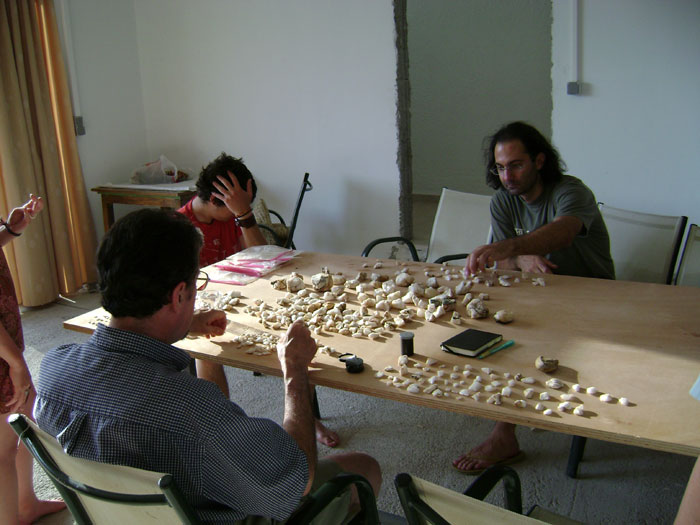Research
- The survey found more than 2,100 stone artifacts found including hand axes made of quartz and identified with the Palaeolithic period—dating back at least 130,000 years. Mesolithic tools (11,000-8000 B.P.), such as microliths, were also found.
- Stone tools found on Crete suggest pre-Homo sapiens traveled to islands in the Mediterranean much earlier than previously recorded.
- The tools would have been produced during the early phases of the Stone Age by pre-Homo sapiens ancestors who arrived on Crete by sea.
The excavation at Damnoni (#3) has uncovered the first stratified Mesolithic site on Crete.
Significance
- These findings may push the history of seafaring in the Mediterranean back by more than 100,000 years and have implications on the colonization of Europe and beyond by early African hominins, our pre-Homo sapiens ancestors.
- The view that Europe and Asia were peopled exclusively by land needs to be rethought.
Location
- Southwestern coast of Crete near the town of Plakias, which faces Libya, more than 200 miles to the south across the Mediterranean Sea.
- Many of the Palaeolithic tools were found in marine terraces as much as 92 meters (300+ feet) above present sea level, the result of shifts in the tectonic plate.
Methods
- The team of archeologists and geologists sought out areas on Crete that presented similar environmental features—including access to fresh water, caves and rock shelters suitable for habitation—to sites on the Greek mainland where early artifacts were found.
- Tectonic uplift and soil studies used to date the artifacts.
- Dating methods included Carbon 14, Marine Isotope Stages and Soil Maturity Stages.
Sponsorship
- The American School of Classical Studies at Athens and with the kind permission of the Greek Ministry of Culture, the Ephoreia of Palaeoanthropology-Speleology of Southern Greece, and the 25th Ephoreia of Prehistoric and Classical Antiquities (West Crete).
Funding
- The National Geographic Society
- The Institute for Aegean Prehistory
- The Loeb Classical Foundation
- The Providence College Committee to Aid Faculty Research
- The Archaeological Institute of America

